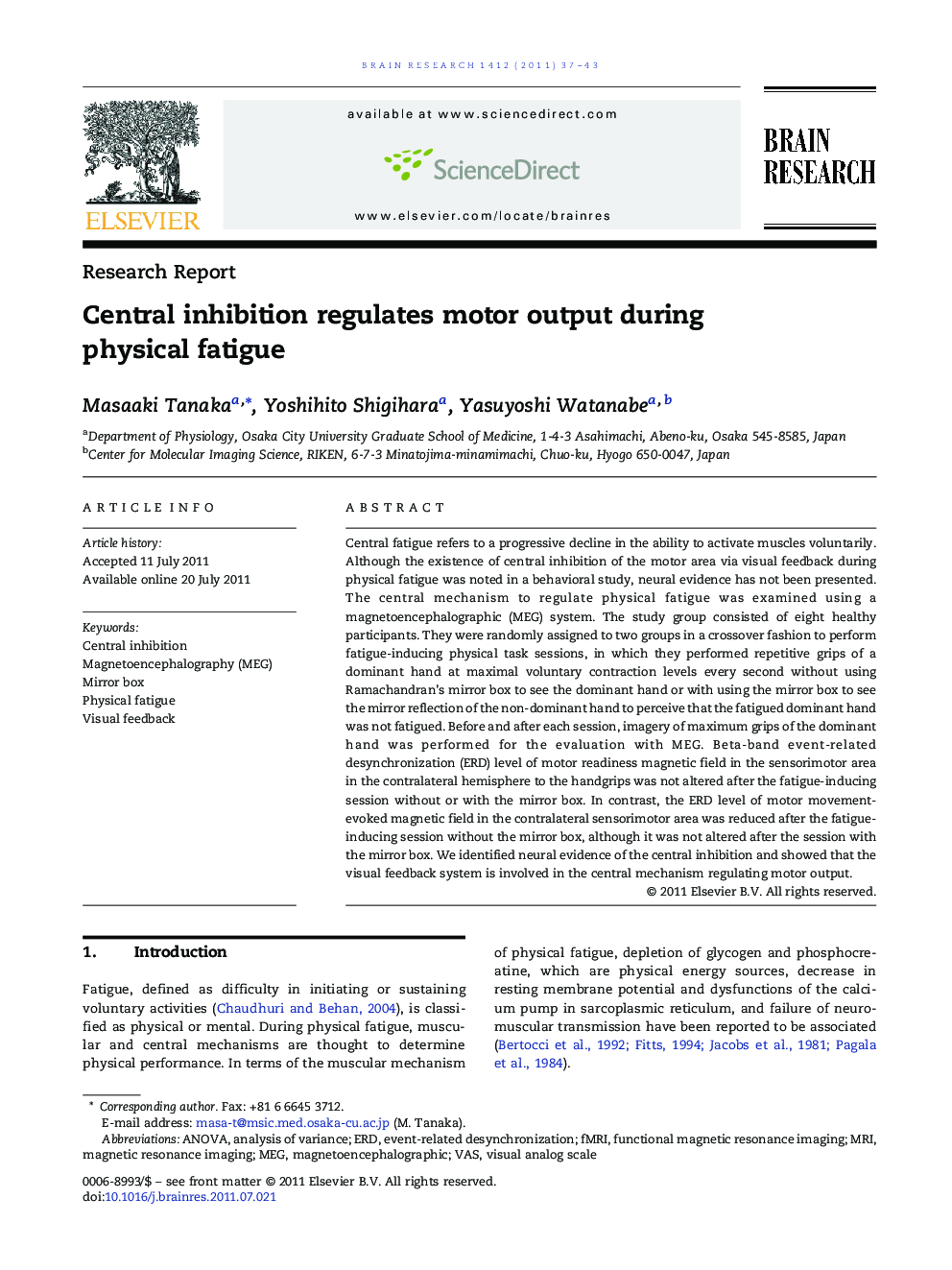| Article ID | Journal | Published Year | Pages | File Type |
|---|---|---|---|---|
| 4325631 | Brain Research | 2011 | 7 Pages |
Central fatigue refers to a progressive decline in the ability to activate muscles voluntarily. Although the existence of central inhibition of the motor area via visual feedback during physical fatigue was noted in a behavioral study, neural evidence has not been presented. The central mechanism to regulate physical fatigue was examined using a magnetoencephalographic (MEG) system. The study group consisted of eight healthy participants. They were randomly assigned to two groups in a crossover fashion to perform fatigue-inducing physical task sessions, in which they performed repetitive grips of a dominant hand at maximal voluntary contraction levels every second without using Ramachandran's mirror box to see the dominant hand or with using the mirror box to see the mirror reflection of the non-dominant hand to perceive that the fatigued dominant hand was not fatigued. Before and after each session, imagery of maximum grips of the dominant hand was performed for the evaluation with MEG. Beta-band event-related desynchronization (ERD) level of motor readiness magnetic field in the sensorimotor area in the contralateral hemisphere to the handgrips was not altered after the fatigue-inducing session without or with the mirror box. In contrast, the ERD level of motor movement-evoked magnetic field in the contralateral sensorimotor area was reduced after the fatigue-inducing session without the mirror box, although it was not altered after the session with the mirror box. We identified neural evidence of the central inhibition and showed that the visual feedback system is involved in the central mechanism regulating motor output.
► Movement-evoked magnetic field was assessed to clarify the mechanism of fatigue. ► We identified neural evidence of the central inhibition during physical fatigue. ► Central visually-induced inhibition impacts fatigue perception. ► Visual feedback was involved in the central mechanism regulating motor output.
